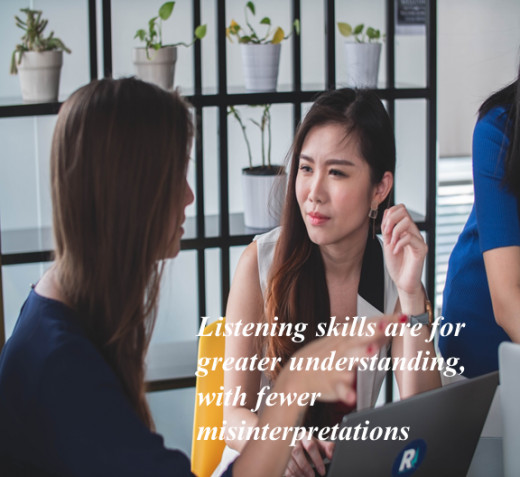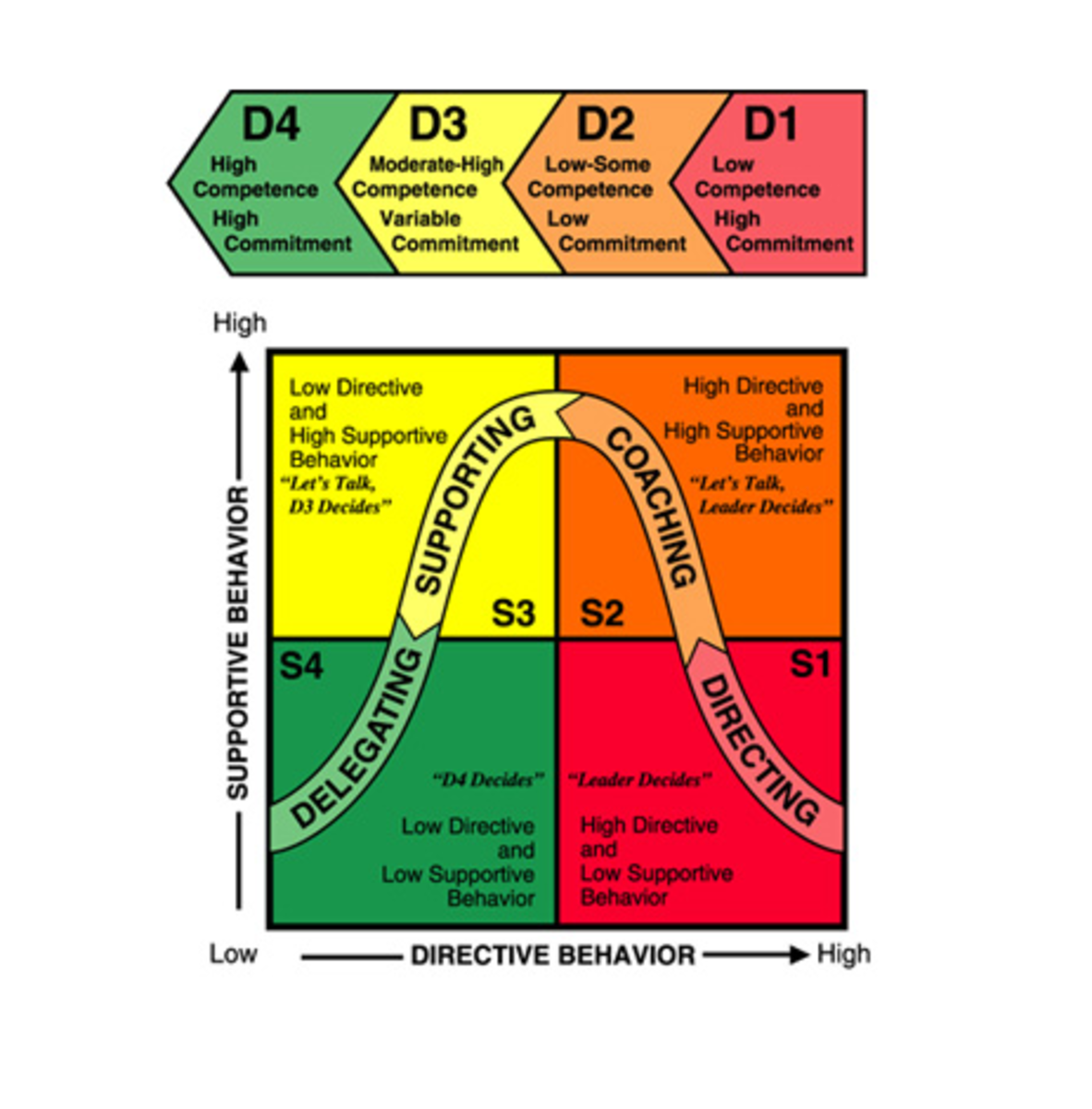Stop Talking and Learn to Listen
Listening Skills

A Question for You
Have you ever been talking to someone your manager, friend or family member, and they were looking in another direction and not at you? They seemed to be pre-occupied with what the people across the room were saying. What were your feelings?
You may have thought; this conversation is not very important and I wonder why I am wasting my time, or why did I bother? You also thought about it long after the conversation was over, and even wished you had not put yourself into that position.
This happens too often with individuals who are not living in the moment and who have not learned how to listen. Every conversation is important, or it should be.
Learning to listen requires skills just like any other personal growth improvement. If we could place ourselves in the situation above, we would more than likely try to remember that not being heard is not a pleasant feeling.
Listening Skills Require the Following:
- Eye contact
- Watching a person’s emotions, hand movements, and stance
- Being able to ask questions that will give answers to what has not been said
- Learning the difference in giving constructive suggestions without being critical
- Learn to discuss without arguing
- Learning how to portray leadership without saying, “I’m the boss”
- Learning to treat others the way you would want to be treated if you were trying to express yourself
Thinking Before You Speak
"A good listener tries to understand what the other person is saying. In the end, he may disagree sharply, but because he disagrees, he wants to know exactly what it is he is disagreeing with." –Kenneth A. Wells

Examples of Someone Who Is Not Listening
If a person is not listening, they often will just shake their head in response and pretend they agree with what you have said. They are looking around the room, not at you, and they actually do not know if they agree or not. The sound of a voice, not the words, nor the meaning was heard.
In other words, they have no clue if it was an important conversation or not. More times than not, they probably agreed to something they do not agree with. Their interest was in the conversation they could overhear by the individuals standing next to them, not you.
This is not good listening skills and nothing that was articulated got any further than in one ear and out the other. It did not go through the brain, if it had, they would be able to recall what was said when they are reminded they agreed with you.
So often people will just up and walk away from a full conversation because they see someone more interesting they want to talk to across the room.
Why Eye Contact Is Important...
Eye contact is mandatory because it gives the person speaking the attention they deserve and the attention you would want if the position were reversed.
If you are looking at someone, you can see their emotions and better understand the meaning of the words that are being said. You can tell by eye contact, hand movement, and stance if they are truly saying what is relevant to the conversation or if their own mind is distracted.
Stop Talking

Stop Talking and Start Listening
"A good listener is not only popular everywhere, but after a while he knows something.” --Wilson Mizner
When a person has the ability to listen, we can learn something we may not know. Listening skills can help a person learn something themselves that can make their knowledge, success, and life more profound.
Learning to listen can also give the person seeking answers the ability to express him or herself more readily. When we give others the ability to speak without interruption, it means we are actually concerned with what they have to say.
Too often, we cannot listen without trying to butt in and give our response without hearing the entire story. In other words, we cannot stop talking long enough to listen and therefore it places us in the position of being misunderstood.
Voicing Opinions Without Understanding
Voicing opinions without knowing all the details is not constructive; it is actually being insensitive and unproductive.
“Effective questioning brings insight, which fuels curiosity, which cultivates wisdom.” --- Chip Bell
No one knows the answers to all situations, not even the leader in most instances. That means sometimes they may need to scan the policies, procedures or guidelines. However, when a person is speaking and giving an opinion if they are listened to without interruption, both individuals may learn something of value.
If a leader has a problem within the team, they know to let their emotional intelligence (EI) work for them, and then their answers will be more suited for all.
It is important and constructive not to show emotions, and/or negative reactions to a mistake made, or incorrect actions. This can make all the difference in one’s ability to manage others. They listen, they examined the context and intentions of the matter and give alternatives that are practical, reasonable, and constructive without offending.
To be deemed an effective leader, one must be willing to learn from everyone. This means they should listen and let their team display their knowledge also.
Employees are hired for a reason, they are usually hired for their experience. This means to help get the job done and generate profits for the company. Competent leaders know they cannot do the job alone.
Learning to listen makes managing easier for the employee and the leader.
Good Advice
"We should never pretend to know what we don't know, we should not feel ashamed to ask and learn from people below, and we should listen carefully to the views of the cadres at the lowest levels. Be a pupil before you become a teacher; learn from the cadres at the lower level before you issue orders.” --Mao Tse-tung
Summing Up
Most of us humans have been in situations where we needed to be listened to. When the other human was looking around the room, we knew we were wasting our words.
Any relationship at work, with our spouse, friend, or our children need us to be listened to.
In the end, I am sure that most of us have had a time when we also did not listen well.
This is a reminder to make sure we give our full attention to the person with whom we are speaking.
This content is accurate and true to the best of the author’s knowledge and is not meant to substitute for formal and individualized advice from a qualified professional.
© 2019 Linda Todd








